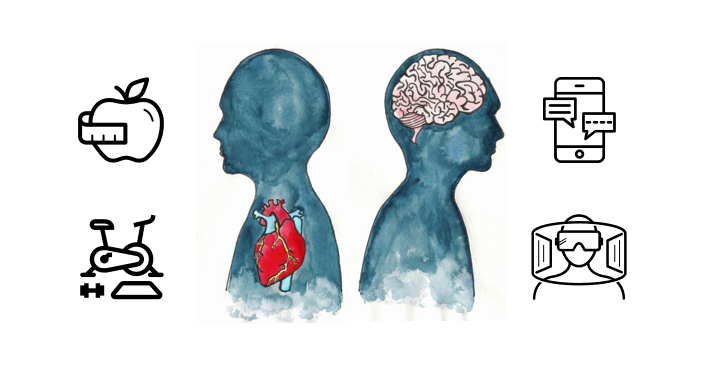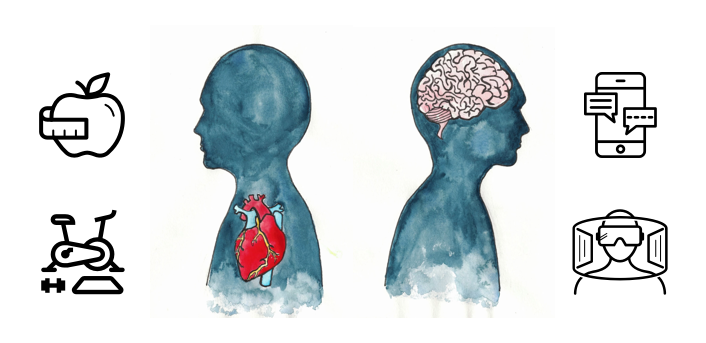BCI 2022: Peloton for the Mind
We need to start thinking of focus as the mental equivalent of cardio. We need a Peloton for the mind.

This series explores how brain-computer interfaces (BCIs) will change our daily life by the year 2022.
Having control over our focus is the single most important skill of the future.
Just as physical fitness is determined by diet and exercise, our mental fitness (as it relates to focus) can be broken down in the same way.

Our mental diet is composed of the incessant trickle of updates and notifications competing for our attention - from bite-sized news snippets to the never-ending reel of social media stories. These are the digital equivalents of junk food for our brain, providing little hits of dopamine.
Even if we manage to clean up our diet, we wouldn’t get far without also doing mental exercise. The design of technology brings about serious challenges of self-regulation, creating habits that drive people to constantly interrupt themselves (believe it or not, we check our phones 52 times a day).
To break these disruptive habits, we need to start thinking of focus as the mental equivalent of cardio. Our capacity to sustain attention is like a mental muscle, something we can train.
What we need is a Peloton for the mind.
BCIs for measuring your focus
The rise in popularity of meditation apps like Headspace and Calm is a testament to the need for mental fitness. The problem is that progress is really subjective and hard to measure. You could be meditating for weeks, but it’s hard to tell if it makes any difference.
What if you could monitor your focus levels on a moment-by-moment basis?
Recent advances in brain-computer interfaces (BCIs) have made this a real possibility. Consumer EEG headsets can measure your brainwaves non-invasively, from outside your brain (more on brainwaves).

By measuring the brainwave activity related to the attentional system, we can estimate how focused you are at any given moment.
Think about what this would mean - for the first time, you could objectively learn about fluctuations in your focus levels. You would have insight into the intensity of your focus, how long you usually stay focused for, the frequency of distractions and their immediate effect, and so on.
This will revolutionize the practice of mental fitness, because people will finally be able to track their progress.
Peloton for the mind
What will these mental workouts look like? Let’s take a look at Peloton for inspiration.
Peloton defined a new fitness category with its live classes, simulating the experience of a high-end spin class from the comfort of home. The leaderboard both speaks to the competitive side of people and adds the much-needed social component of exercising alongside others. Finally, the huge library of pre-recorded classes means that you can find a workout for every time frame, intensity, and mood.
Peloton’s convenience, personalization, and community all contribute to a magical experience that people fall in love with. In 2022, the experience of maintaining your mental fitness will be just as magical.
Imagine this - it’s half an hour before you start work. You put on your BCI-enabled VR headset and launch the Peloton Focus app. It looks like some friends also just logged in, so you send them invites to a live class that’s about to start. The class is a new type of focus exercise released just last week, inspired by that old Flora app.
Here’s the basic idea - everyone in the class is transported to a large clearing in a forest and each person is growing a tree. The speed at which the tree grows is related to the intensity of your focus, and the goal is to have the tallest tree at the end of the class. Whenever your mind wanders or the intensity of your focus wanes, the tree branches off and starts to grow sideways.
As you warm up, the instructor introduces the soundtrack as well as the distractions they have designed for this class. These distractions vary in difficulty based on the level you’re training at, ranging from erratic forest sounds to pesky squirrels clawing at you.
After the class, you can see how you did compared to your friends (and everyone else). The unique shape of the tree you grew is essentially a graph of your focus over time, but you can also access the in-depth report providing the minute details of the session.
Who is leading the charge?
Even today, there are startups that are building products to help people measure and learn about their focus.
Foci is a wearable device that uses your breathing rate as a proxy for focus. It nudges you with a buzz when you're distracted, and comes with a companion app that features focus analytics and training.
Notion is an EEG headset that's meant to be a productivity trainer built with programmers in mind. Beyond focus analytics, it also pairs with the coding environment (VS code) and your music environment (Spotify).
As the technology matures, we’ll be seeing an explosion in the popularity of mental fitness. People will be much more protective over their attention. You’ll look back and wonder how you managed to live your life without measuring focus.
Friday Brainstorm Newsletter
For more, join 300+ curious people subscribed to the Friday Brainstorm newsletter. It’s one email a month with the most interesting ideas I've found related to science and health.